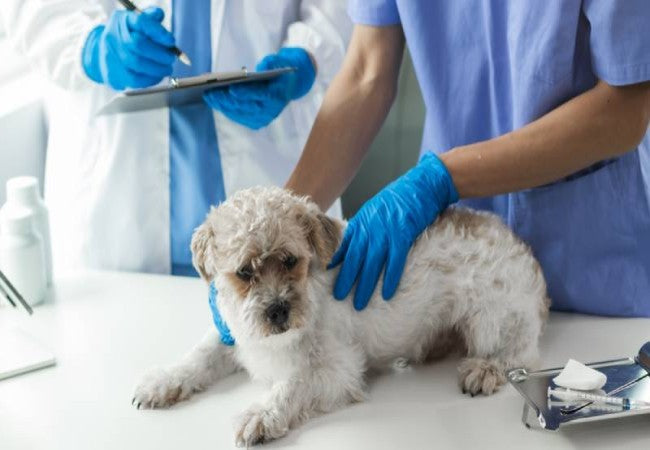Vet Guide to 2025: Best Ways to Help Your Dog Gain Weight — Nutrition, Supplements & Smart Tracking 🐶🩺

In this article
Vet Guide to 2025: Best Ways to Help Your Dog Gain Weight — Nutrition, Supplements & Smart Tracking 🐶🩺
By Dr. Duncan Houston BVSc
When your dog is underweight—thanks to illness, recovery, or high activity—it’s crucial to help them gain weight safely. I’m Dr Duncan Houston BVSc, here to provide a comprehensive, vet-approved plan: choosing nutrient-rich foods, adding healthy boosters, using supplements, and combining it all with tracking via Ask A Vet.✨
1. Pick Calorie-Dense, High‑Protein Foods
- Choose foods labeled “complete & balanced” and AAFCO‑compliant—designed for puppies or high‑performance dogs.
- PetMD recommends canned foods like Wellness Complete Health Just for Puppy and dry formulas like Merrick grain‑free lamb & sweet potato or Adirondack 30% high‑fat puppy/performance formula.
- Sport‑grade diets (e.g., Purina Pro Plan Sport 30/20) offer ~30% protein and 20% fat to support lean muscle gains and higher caloric needs.
2. Add Nutrient-Rich Home Boosters
- Cooked lean meats (chicken, turkey, beef) provide protein and palatability.
- Eggs are easy to digest and full of protein—avoid raw whites due to avidin.
- Fish like salmon or sardines also add omega‑3 fats and lean protein.
- Healthy fats—fish oil, coconut oil, peanut butter—are calorie-dense; limit treats to 10% of daily calories.
3. Consider Vet-Grade Supplements
If diet changes aren’t enough or your dog is recovering, a vet-formulated weight gainer can help:
- Liquid or powder gainers containing whey protein, fats, carbs, and added nutrients support steady mass gain.
- Use these under vet guidance, monitoring intake and body condition to avoid obesity.
4. Track Progress and Adjust as Needed
- Check weight weekly; aim for a gradual ~1–2% body‑weight gain per week.
- Use body‑condition scoring—look for ribs you can just feel and a visible waist.
- Adjust feeding amounts based on growth patterns and energy levels.
5. Smart Monitoring with Ask A Vet,
- Ask A Vet App: Log meals, weight, activity levels with photos—receive expert feedback and tailored diet tweaks.
6. FAQs
- How fast should my dog gain weight?
- Target a slow, steady gain of 1–2% of body weight per week; faster gains can strain the body.
- Can I use raw eggs?
- No—cooked eggs are fine, but raw whites contain avidin, which affects nutrient absorption.
- My dog is picky—what helps?
- Warming meals, mixing in boosters or supplements, and adding variety can boost appeal.
- When should I consult a vet?
- If no weight gain after 4–6 weeks, appetite drops, vomiting occurs, or there's a medical concern.
Conclusion 💡
Helping an underweight dog regain healthy weight involves nutritious, calorie-dense food, safe home boosters, and supplements when needed—framed by consistent tracking and vet oversight. With Ask A Vet, progress alerts, and proactive advice to keep your dog on track. Let’s nourish your companion back to strength and vitality. 🐾❤️






